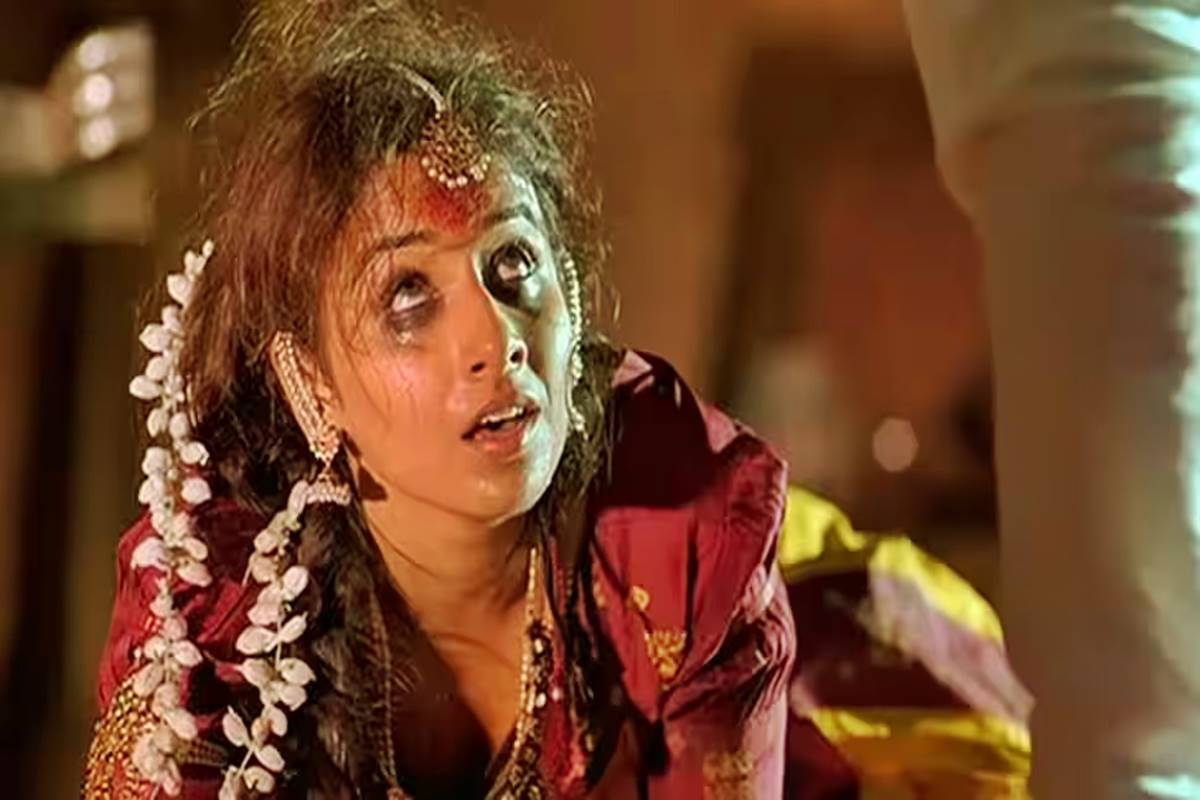Biwi no. 1 re-release: Salman Khan and Karisma Kapoor’s comedy classic returns
'Biwi No. 1' is a comedy about a businessman, Prem (Salman Khan), who juggles an affair with a model while his wife, Pooja (Karisma Kapoor), plans her revenge.
Delve into her complexity as both victim and villain, her influence on Indian horror, and her role as a symbol of oppressed femininity.

Vidya Balan in 'Bhool Bhulaiyaa'
Manjulika, one of the pivotal characters of the Hindi movie ‘Bhool Bhulaiyaa’, is more than a horror film character. She steps beyond the parameters of horror into a cultural, psychological, and societal narrative of India. She not just influences the main storyline of the movie, but also inspires larger themes that the movie embodies, which extend to resonate with the audiences, both contemporarily and historically.
But why is Manjulika so widely popular? Historically, she is incorporated into Indian folklore, where the idea of restless spirits and vengeful ghosts plays a significant role. The stories of such entities are a part of Indian mythology, so the character carries on a familiar touch to people who know about these stories.
This cultural significance anchors Manjulika to a tradition that commands fear, respect, and curiosity, linking her to a sea of similar stories from different communities across India.
Advertisement
Manjulika’s complexity as a character is the other reason why she remains relevant. She has depiction both as a victim and a villain, trapped in a juggernaut of love, betrayal, and madness. This duality just enriches her character, allowing for various interpretations and discussions between viewers and critics.
Viewers can sympathize, and empathize with her tragic past yet fear the revengeful spirit simultaneously, creating a dynamic viewing experience that makes the audience mull over the spectrum between good and evil.
Manjulika’s psychological depth reflects the modern concerns about mental health and societal pressures. As the story unfolds, it is clear that her agony is not due to supernatural pressure but is rooted deep into trauma and stigma related to mental illness. Perhaps this is what it makes her character even more contemporarily relevant.
She also played a role for the horror genre in Indian cinema, for she has become an iconic figure, inspiring a generation of filmmakers and writers to emulate similar trends and character archetypes.
The legacy of Manjulika continues to shape the landscape of Indian horror, making her a benchmark for character development within the genre.
Besides the fact that she brings narrative value, Manjulika symbolizes greater societal concerns about femininity and gender. Her character depicts the dilemma of oppressed women, for example, proving that the rigidity of expectation set upon them provides disastrous results when they fall into the cracks of society.
With her complex feminine self locked in a patriarchal society, Manjulika epitomizes most silent voiceless women who find themselves reflected through this character and challenge the customs ruling over their lives.
The reason Manjulika has survived in popular culture is because of her different nature and themes she represents. More depth at cultural and psychological to societal levels, her character strikes a chord and makes sure she remains a significant part of Indian storytelling.
Audiences continue to engage with her story, and Manjulika becomes a bridge between past and present, a symbol of the timeless nature of folklore and the complexity of the human experience.
Advertisement